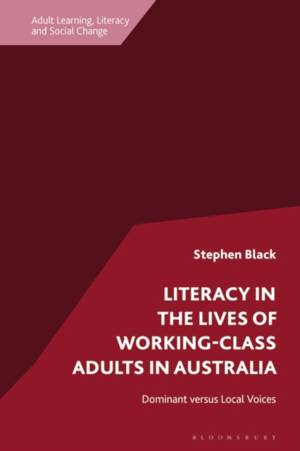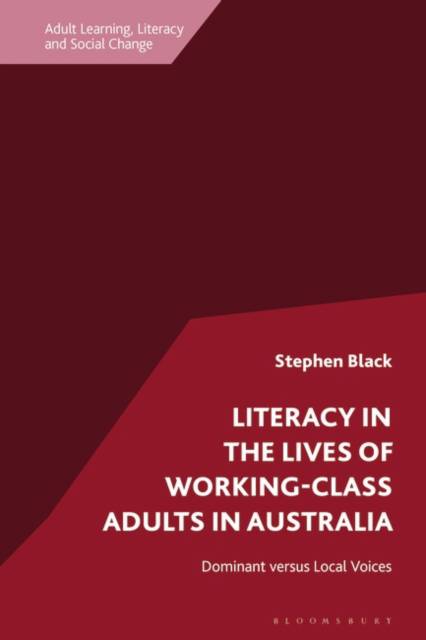
Bedankt voor het vertrouwen het afgelopen jaar! Om jou te bedanken bieden we GRATIS verzending (in België) aan op alles gedurende de hele maand januari.
- Afhalen na 1 uur in een winkel met voorraad
- Gratis thuislevering in België vanaf € 30
- Ruim aanbod met 7 miljoen producten
Bedankt voor het vertrouwen het afgelopen jaar! Om jou te bedanken bieden we GRATIS verzending (in België) aan op alles gedurende de hele maand januari.
- Afhalen na 1 uur in een winkel met voorraad
- Gratis thuislevering in België vanaf € 30
- Ruim aanbod met 7 miljoen producten
Zoeken
Literacy in the Lives of Working-Class Adults in Australia
Dominant versus Local Voices
Stephen Black
€ 203,95
+ 407 punten
Omschrijving
Adopting a 'social practice' approach to literacy research based on ethnographic methods, this book provides a strong critique of dominant understandings of the role of literacy in the lives of adults in Australia. It explores how groups of working-class adults can manage the literacy practices of their everyday lives by drawing on social networks of support. It is based on research conducted by the author over a forty-year career in adult literacy education, featuring the voices of varied adult groups, including: prisoners, the long-term unemployed, local council workers, manufacturing workers, adult literacy students, marginalised young people, vocational students, and patients living with a chronic illness (type 2 diabetes).
Each chapter explains how dominant society views these adult groups in relation to literacy, and provides a qualitative examination at the local level of how members of these groups manage the literacy practices of their everyday lives.
Each chapter explains how dominant society views these adult groups in relation to literacy, and provides a qualitative examination at the local level of how members of these groups manage the literacy practices of their everyday lives.
Specificaties
Betrokkenen
- Auteur(s):
- Uitgeverij:
Inhoud
- Aantal bladzijden:
- 240
- Taal:
- Engels
- Reeks:
Eigenschappen
- Productcode (EAN):
- 9781350378100
- Verschijningsdatum:
- 14/12/2023
- Uitvoering:
- Hardcover
- Formaat:
- Genaaid
- Afmetingen:
- 156 mm x 234 mm
- Gewicht:
- 512 g

Alleen bij Standaard Boekhandel
+ 407 punten op je klantenkaart van Standaard Boekhandel
Beoordelingen
We publiceren alleen reviews die voldoen aan de voorwaarden voor reviews. Bekijk onze voorwaarden voor reviews.









